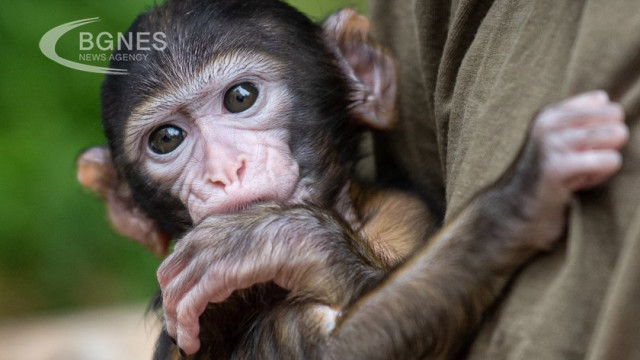Chinese researchers have cloned the first rhesus monkey, a species widely used in medical research because its physiology is similar to that of humans.
They claim they can speed up drug testing because genetically identical animals produce similar results, providing greater certainty in trials.
Previous attempts to clone rhesus monkeys either failed to give birth, or the offspring died several hours later.
One animal protection group said it was "deeply concerned" by the development.
In mammals, sexual reproduction results in offspring composed of a mixture of the father's and mother's genes. Cloning uses techniques to create a genetically identical copy of an animal.
The most famous cloned animal, Dolly the sheep, was created in 1996. Scientists reprogrammed cells from another sheep to turn them into embryos, which are building cells that can develop into any part of the body. These embryos were then implanted into Dolly's surrogate mother.
In the journal Nature communications, the researchers claim to have essentially done the same thing, but with a rhesus monkey. They claim that the animal remained healthy for more than two years, indicating that the cloning process was successful.
Dr Falun Lu of the University of the Chinese Academy of Sciences told BBC News that "everyone was delighted" by the successful outcome.
However, a spokesman for Britain's Royal Society for the Prevention of Cruelty to Animals (RSPCA) said the organization believed the suffering caused to the animals outweighed the immediate benefit to human patients.
Rhesus monkeys are found in the wild in Asia, with populations found in Afghanistan, India, Thailand, Vietnam and China. They are used in experiments to study infections and immunity in humans.
The first macaque monkeys were cloned in 2018, but rhesus monkeys are preferred by medical researchers because of their genetic similarity to humans.
The problem with this method of cloning adult cells into embryonic cells is that in most attempts reprogramming errors are made and very few are born, and even fewer are born healthy - between 1 and 3% in most mammals. In rhesus monkeys, this proved even more difficult, as there had not been a single birth until the research team's success two years ago.
They found that in the failed rhesus experiments, the placenta, which provides oxygen and nutrients to the growing fetus, was not reprogrammed correctly in the cloning process and therefore did not develop normally.
The researchers tackled this problem by not using the part of the cloned embryo that becomes the placenta—the outer part. They removed the internal cells that were developing in the animal's body and placed them in a non-cloned external embryo, which they hoped would develop into a normal placenta.
The researchers used 113 embryos, 11 of which were implanted, and achieved two pregnancies and one live birth.
They named the monkey "ReTro" after the scientific method called "trophoblast replacement" used to create the animal.
The RSPCA said it had serious concerns about the research.
"There is no immediate application for this research. We are expected to assume that human patients will benefit from these experiments, but any real-world applications will be years away, and more animal 'models' are likely to be needed as these technologies are developed." said the spokesperson of the organization.
"The RSPCA is deeply concerned by the very high number of animals who experience suffering and distress in these experiments, as well as the very low success rate. Primates are intelligent and sentient animals, not just tools for researchers"./BGNES



.jpg)
.jpeg)


